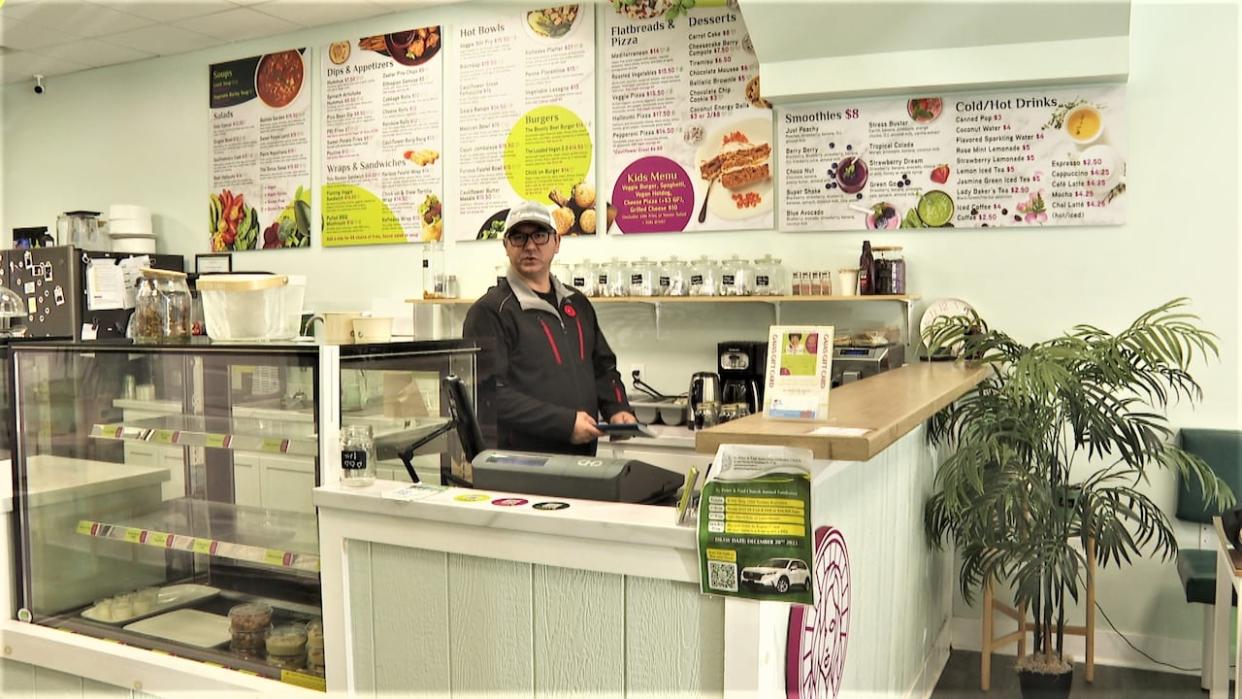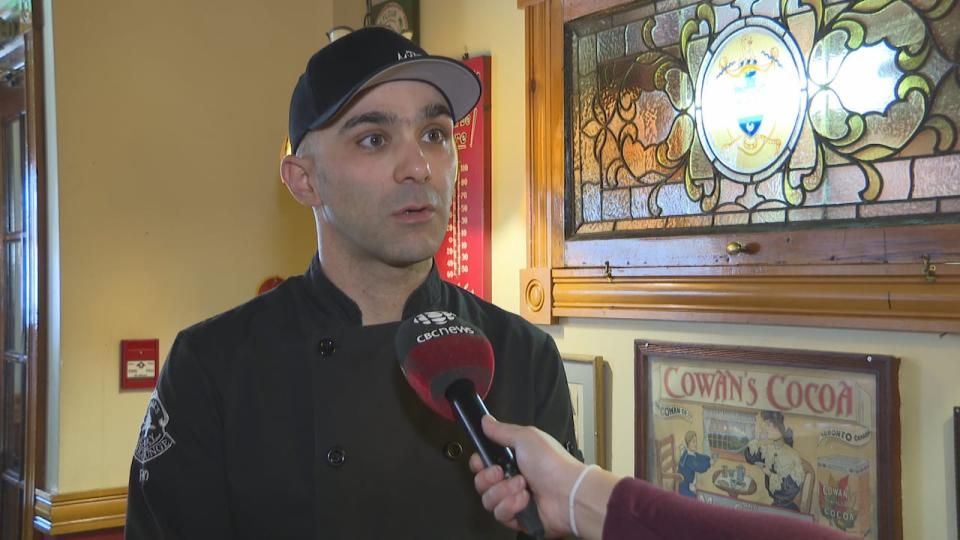'We're going to see some doors shut': P.E.I. restaurants feeling pinch of higher costs

Some restaurateurs on P.E.I. say they're struggling to break even as they grapple with rising costs and a change in customer habits.
"We're going to see some doors shut," said Charbel Jreij, owner of Gaia's Urban Eatery in Charlottetown. "That's not me saying it. That's the numbers."
A few blocks away at Brits Fish and Chips on Great George Street, Hamed Voghoufi says it's getting harder to turn a profit thanks to inflation, which is boosting the cost of everything from food to fuel and utilities.
"The price of oil has more than doubled and food costs in general — it depends on the product, but they have absolutely 20 to 30 per cent increased for us," he said.

Hamed Voghoufi of Brits Fish and Chips in Charlottetown says he can relate to customers who have cut back on dining out. (Brittany Spencer/CBC)
"There's less customers and if they used to come every week, now they're coming every two weeks or once a month, so that absolutely changed since 2022, I noticed that."
Voghoufi doesn't blame his customers for cutting a restaurant meal or two from their budgets, though.
"I absolutely feel what the customer is going through because I'm on the same page," he said. "I avoid going out."
Rising costs
A recent Restaurant Canada survey found only about half of Canadian restaurants are turning a profit.
At a glance, it might seem Island restaurants are doing well. Compared to the record tourism season of 2019, sales are up almost 40 per cent to the end of August in 2023.
But behind those numbers are trends that are eating away at the potential profits for restaurant owners.

Ryan Abdallah, the owner operator of Cedar's Eatery in Charlottetown, sees the impact of inflation up close every time the restaurant orders more supplies. (Brittany Spencer/CBC)
We could start with something anyone who's been in a grocery store recently is familiar with: inflation on food. According to Statistics Canada, food costs on P.E.I. are 27 per cent higher than they were in 2019.
Ryan Abdallah, owner operator of Cedar's Eatery in Charlottetown, said it seems like prices have gone up every time he puts in an order.
"You can't keep up these days ... You put an order in, the order confirmation comes back and everything is up," he said. "It wasn't like that a long time ago. You could kind of rely on prices staying stable or the same. And I think everyone is feeling it across the board."
Wages are higher, too — up 23 per cent in the hospitality industry.
We are chewing those costs. That's what we're doing now. For how long? I cannot tell. — Charbel Jreij
You would think increased sales would cover those costs, but there is a big discrepancy in sales growth between full-service and limited-service restaurants, between dining rooms and takeout and delivery.
A change in service
There has been a big shift toward takeout and delivery in the last four years.
Sales growth for full service is just 19 per cent, which is less than those benchmark expense increases. Meanwhile, sales at limited-service restaurants are up 47 per cent.
That doesn't mean restaurants are making big money on takeout, though. Meal delivery services like UberEats and DoorDash, new to P.E.I. since the pandemic, are collecting a large share of those increased revenues.
"It's big damage. The damage is that these companies, they charge us restaurants close to 20 per cent of every order placed on their platform," said Jreij at Gaia. "We don't have that much profit. That's selling at loss."
Those meal delivery services charge restaurants anywhere between 15 and 30 per cent per order, depending on the plan the restaurant has subscribed to.

Delivery services are taking a big bite out of his profit margin, says Charbel Jreij. (Brittany Spencer/CBC)
Gaia opened in 2021 when dining rooms were closed due to the pandemic. Jreij came to rely on delivery services and worries he will lose customers if he drops them.
Struggling to break even, Jreij said he faces impossible choices: He doesn't feel making his portions smaller is fair, he won't compromise on quality, and he worries rising prices will drive customers away.
For now, Jreij is just trying to hold on.
"We are chewing those costs," he said. "That's what we're doing now. For how long? I cannot tell."


